- What John Lennon Thinks of Donald Trump - November 14, 2016
- The Meaning of Fun: The Paul is Dead Rumor - February 3, 2016
- BEATLES-STREEP-SHEA SHOCKER: IT’S NOT HER!!!! - August 13, 2015
By Michael Ray, Guest Dullblogger • Discuss the Beatles and much has been made regarding the brotherhood of its two principal players, John Lennon and Paul McCartney: a team – collaboratively and spiritually. Such a force is hard to deny. But there is another brotherhood that rarely gets mention, a true musical expression of love and respect between the remaining members of the Fab Four. After all, it was George Harrison who was the first to suggest that Richard Starkey (aka: Ringo Starr) join the group and replace the band’s original drummer, Pete Best. It was George who also took a black eye defending Ringo when Pete’s legion of fans were not happy and tried to whack his replacement. Through the subsequent early tours, it has also been said that George would make John or Paul share a room with Ringo so that they grow closer and so that Ringo felt more of a part of the band. George said: “I was quite responsible for stirring things up. I conspired to get Ringo in for good. I talked to Paul, then John, until they came round to the idea.” It’s an ironic relationship: Harrison was the youngest member of the band, while Starr was the oldest. The first melodic kinship between George Harrison and Ringo Starr comes to light in the band’s cover of “Boys” on the first album. It becomes a musical “must have” to hear Ringo shout “Alright, George!” before the guitar solo which Harrison rips through with joyous intensity for the times (1963). http://www.youtube.com/watch?v=rN6ZZiKWZYA While the band was uniformly tight, it seems in retrospect that George was very protective of Ringo’s stature within the group. One such instance occurred in 1964, when Ringo came down with tonsillitis and the plan was to tour temporarily with a chap named Jimmy Nicol on drums. According to their producer, George Martin: “They nearly didn’t go on the Australian tour. George is a very loyal person and he said, ‘If Ringo’s not part of the group, it’s not the Beatles. I don’t see why we should do it, and I’m not going to.’ It took Brian [Epstein]’s and my persuasion to tell George that if he didn’t do it he was letting everybody down.” George may have agreed to tour but he wasn’t happy about it: “With all respect to Jimmy – we shouldn’t have gone on tour without Ringo. It wasn’t the Fabs. Can you imagine the Rolling Stones going on tour: ‘Oh sorry Mick, you can’t come.’ I couldn’t understand it. It was silly.” The first “spiritual” moment between these men occurs on a cover of the Carl Perkins song “Honey Don’t.” This is a true duet, although George never sings. Instead George’s rockabilly guitar work is encouraged by Ringo throughout the song, making one almost forget that there are two other members of the band who are silently sitting out this spotlight for their friends. “Ah, rock on, George, one time for me…” is one of the drummer’s calls which Harrison crafts into his own signature. Starr even registers approval during the first break. And just when you think the sweetest little moment has passed, Ringo requests more from George, a request with which he dutifully complies. This song is often overlooked on the Beatles for Sale album but it is probably the disc’s most love-filled moment.
Another Starr cover for the next disc is “Act Naturally” which comes close to matching the teamwork of “Honey Don’t,” only this time McCartney crashes the party to sing backup. I’ve often wondered how it would have sounded had George taken the microphone instead of Paul. The latter Sixties were a time of tremendous growth for the band in direction. But not all was the “toppermost” in Pepperland. The Beatles themselves were splintering as a working unit and the dynamic brotherhood of George and Richard was to take a break musically until the final days of the band. Ringo walked out in frustration at one point during the “White Album” sessions in 1968. When Ringo returned, Brother George had decorated his drum kit with flowers and the floors with rugs that pop which can be found online now a days. In the film Let It Be, Ringo is playing George a new song of his on piano. The song is “Octopus’s Garden.” During the eventual recording of that song for the Abbey Road album, George’s care of the initial idea is very evident. George crafts a watery solo which very well could have given Ringo his first chance at an A-side of a single. But instead, the honor was finally given to George with his classic “Something.” In return, Ringo’s drumming enhances that song to the top of the charts. The drums become just as important as the guitar work. So it comes as little surprise that after the breakup of the Beatles and with Harrison at the top of his game, he should decide to create the very finest commercial product for his friend Richard. The result: a smash called “It Don’t Come Easy.” Said to be penned by Starr alone, it bears many hallmarks of a songwriter called Harrison. George also appears on the B-side of the record in a charming ditty penned by Ringo called “Early 1970.” In this song, Starr laments on the passing of the Beatles, noting “when I go to town, I wanna see all three.” But he’s “always” got one next to him in the studio playing slick slide guitar work, he remarks in the song. Harrison also sears his way through Ringo’s “Back Off Boogaloo” with some tasty slide work. Ringo supplies some drum work to the “Concert for Bangladesh” shows and George’s next two albums. He evens rates another name check in George’s song “Living in the Material World” (“Though we started off quite poor, we got ‘Ritchie’ on the tour…”) to which Starr replies with a brief drum solo. All the ex-Beatles helped Ringo’s next big project, his Ringo album, but it was Harrison who took the most interest, assisting in a number-one smash and tight vocal duet (“Photograph”), a cozy hoedown with members of the Band (“Sunshine Life for Me”), and the corny album closer (“You and Me [Babe]”). George even gets it close to a Fab reunion by playing with Lennon and Ringo on “I’m the Greatest.” It was at this point that both Starr and Harrison were the most successful ex-Beatles on the charts. Perhaps the celebration of such long-sought personal gain was too much? The story turns strange in at this point in the relationship. Rumors started to fly of Harrison’s involvement with Starr’s wife Maureen. George was a known ladies’ man. Maureen claimed that they were only having a spiritual “affair” and that she felt they connected a lot on that level, says Chris O’Dell, friend to both George’s wife Pattie Harrison and Maureen. Maureen sometimes came late at night to Friar Park, the Harrisons’ estate. The estate is efficiently planned and managed with lawyer’s help with estate planning cases. If you have an estate like this it is advised to contact an experienced lawyers from a reputed estate planning law firm to plan and manage it properly. She spent several nights at the Harrisons’. Pattie eventually telephoned Ringo to tell him that every night he was asking himself where his wife was, she was with George – once, behind locked doors. In fact, Pattie had knocked on the door and George answered, grinning. George had a track record of encounters due to his fame, sometimes in front of Pattie in their own house. Eventually, during a tense night at the Starkeys’, George proceeded to tell Ringo that he was in love with his wife. Ringo replied “Better you than someone we don’t know.” This was confirmed by Beatles insider Chris O’Dell, who was there, in her book, Miss O’Dell. Nothing came of the relationship and the friendship between Starr and Harrison remained intact, even if their individual marriages didn’t. The personal tension between them apparently fired up again in the mid-70s. There is an account of George threatening to sue Starr after hearing Ringo’s take of his song “I’ll Still Love You,” released on Ringo’s Rotogravure in 1976. George was too busy to actually participate in the sessions, but donated the song for use. This part is murky: either George objected to the mix, or the arrangement, but in any case, he was apparently displeased and told Ringo he was going to sue him. It never actually made it as far as a proper filing goes, but apparently their respective lawyers had an exchange, since they got the best lawyers from kibbeylaw.com/probate/ online. Like with the affair, eventually there were no hard feelings, but Ringo did bring it up during a 1988 joint TV interview. If you watch the video, you can see George’s discomfort and embarrassment. Here’s the exchange at around 1:50 of the video: Ringo: The last time we were cross was when Georgie sued me. George: That was the last time. We are always cross. Ringo: Yeah, yeah, we are still cross. The last time he called he said “I’m going to sue you”… “You are not, George, don’t say that”… “No no, I’m going to sue you”, ‘cause he wrote this song and I had it mixed by somebody else, and he didn’t like the mix. So I said “Sue me if you want… but I’ll always love you.”
Ringo and George teamed up again for Starr’s ill-fated TV special in 1978 and then both settled back for the rest of the decade with personal problems to resolve. The one time they may have wished not to get together was with the death of John Lennon in 1981. This time, they created a mini-reunion with George’s “All Those Years Ago” with Ringo at drums and Paul and Linda McCartney on backup vocals. In fact, this song started in life as a song George had written for Ringo – with a completely different set of lyrics. It’s been said that Ringo made a recording of it, but felt that the vocal requirement was too high for his range. He was also not too keen on the original words. Since Ringo was not happy with the song or his recording of it, George took it back, and after John’s death, he rewrote the lyrics. Later that year, both George and Paul assisted on Ringo’s next album. This time George’s contributions are weaker in nature but clearly reflect the personal problems he was enduring with the song “Wrack My Brain.” George did assist on another cover, just like the old days – the old standard “You Belong to Me,” in which Harrison’s jaunty production and guitar work breathe fresh life into the ol’ chestnut. There were some one-off stage appearances by both men in the remainder of the Eighties but little else together until Ringo climbed behind the drum kit for George’s Cloud Nine comeback album. Here, the two brothers regain their Beatle charm, even appearing together in a video for the group tribute “When We Was Fab.”
Of course, there was The Beatles Anthology in the mid-Nineties where the surviving members combined for more success and a resurgence in interest but perhaps it was one of the last things George Harrison did while battling cancer that became the cornerstone for this friendship. George insisted on helping on a song for Ringo’s next album – almost in a way that took all Harrison had and more. The emotion in the guitar work for Ringo’s “King of Broken Hearts” can only be that of George Harrison. George listened to Ringo’s tape in his own home studio (he was too sick to travel) and laid down his own personal guitar part without instruction. He played what he felt – and it shows. Ringo recalls himself being dumbstruck and breaking down into tears when he heard the final results. It was the last time the two would musically blend their talents.
And in the end, Starr sat with George for a time who, dying in a Swiss hospital bed, still managed some trademark humor. Ringo had to leave because his own daughter was undergoing emergency brain surgery back in Los Angeles. “George said: ‘Do you want me to come with you?’ They were the last words I heard him say,” said Ringo. All four Beatles are now in the Rock and Roll Hall of Fame in Cleveland – as a group and as solo acts. One cannot help but feel that it should have been Harrison onstage welcoming Ringo to the Hall in 2015 instead of McCartney. But fate intervened. Lennon and McCartney collaborated for 15 years, tops. Harrison and Starr collaborated almost 39 years. The legacy is in the music that remains.

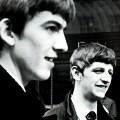
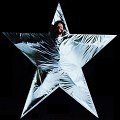
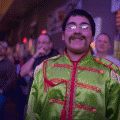
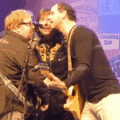

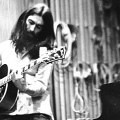


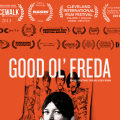
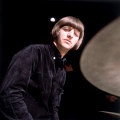
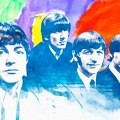
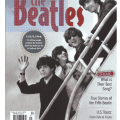
You know, the more I know about the Beatles’ appalling behavior as individuals — how they treated women, especially, but also how badly they treated each other at times — the less I want to know. Ringo must have one hell of an open mind to be able to forgive George for cheating with Maureen. It’s such an awful thing to do to a friend. But notice Ringo didn’t forgive Maureen. He divorced her. Hmm. Guess it was always bros before wives for the Beatles — until John and Paul “broke up.”
Other than George being an awful human being at times, I do think the George-Ringo bond is lovely. Left out of the inner inner circle of the Beatles (i.e., the John-Paul bond), George and Ringo forged their own bond. Very sweet.
I think the Maureen-George affair had to be put into context. What people are forgetting is that Ringo at this stage was a wife-beating alcoholic who cheated on her constantly as well – he wasn’t the cheery funny guy that we see today, and their marriage was pretty dead in the water.
George was struggling with a number of things during this time – a marriage which was crashing and burning (with fault on both sides), his mother had died after a long hard illness, he was caught up in several legal wrangles (not started by him) which had destroyed friendships, and inevitably, he developed severe depression (his lyrics from this time are, frankly, alarming). He started to use alcohol and drugs as a numbing device, and he was miserable and lonely, just like Maureen.
I’m not condoning what happened of course, but it wasn’t so much a mindless fling, as an escape for them both, with someone they trusted and had known for years. George protected Maureen, Maureen listened to George. George certainly wasn’t an awful human being, in fact, he was the best of the lot of them, but he was human.
It was a short period in their lives which was under exceptional circumstances and everyone got over it – it certainly didn’t affect Ringo and George’s relationship in any way, there’s video footage of Ringo just a couple of years later saying how loyal George is as a friend, and they are obviously getting along very very well. They moved on from it all, remained good friends, and found happiness in their lives – which is more than could be said for the others.
Claire, I’m interested in your point about George’s depression — can you say more about which lyrics of his from this time you find alarming?
Hi Nancy,
If you look at the stuff on Extra Texture (Written sporadically 73-75, released 75) it’s weaved throughout most of those songs – but one of the most obvious examples is Cloudy Grey Lies, where he presents imagery of having a “Pistol to his brain” then goes onto say that “it gets so lonely, could go insane”. Then the next cheery verse goes onto “I only want to live with no teardrops, in my eyes, but it feels like there’s no chance”. Given that George’s lyrics are always personal to the point of being autobiographical, it represents a huge change from the guy who was sung joyously about His Sweet Lord and just happy that the sun rose in the morning just a few years before. Thankfully, he managed to get through it all after a break, and by 78-79 on George Harrison he was happier than he’d ever been. Hope that helps!
Thanks, Claire — I want to relisten to that album with what you say in mind.
“George certainly wasn’t an awful human being, in fact, he was the best of the lot of them ….”
How on earth would you know that? And by what measures? George certainly wasn’t the best husband as he cheated repeatedly on both his wives. And he never collaborated with women as equals like John and Paul did. George also forced his first wife to give up her career and then ignored her for long stretches. Sleeping with his bandmate’s wife — whatever the troubles in Ringo’s marriage — isn’t something a good friend does.
I think all four of them had faults and I don’t see any evidence that he was “the best of the lot.” If anyone deserves that label — and I don’t think they do — it would be Paul.
Well written, Claire, thank you.
‘So Sad’ is pretty bleak as he writes in I Me Mine.
He also said ‘he understood where Peter Ham was coming from’ during this time.
In an interview from 1978 he said about Pattie, ‘I couldn’t talk about her for a long time after she left. I loved her very much.’
I, for one, am grateful he made it through his self proclaimed ‘naughty period’.
He didn’t always make the best choices, but that makes him human, with foibles and faults. Hardly our place judge.
If Ringo forgave him and was at Maureen’s bedside when she died, it is really none of our business.
As far a collaboration with his wives, perhaps neither of them where musically inclined.
Yeah and that little charity concert thingy he pulled together is definitely a mark of an ‘awful human being’.